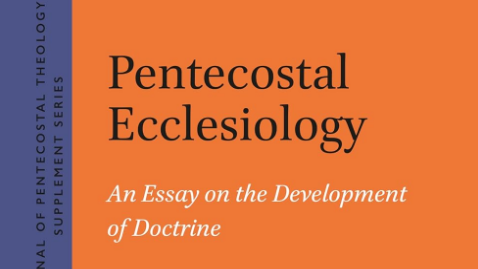The use of natural gender in the New Testament Greek and English: A preliminary study.

Table of contents
Gender of the Holy Spirit
The debate about the gender of the Holy Spirit is a result of varying translations of scriptural passages and subtleties in language. Grammar-wise, the Hebrew word “Ruach” (ר֫וּחַ), which is frequently used to refer to the Spirit, is feminine. Grammar-wise, “Pneuma” (πvεῦμα) in Greek is neuter, whereas “Spiritus” (πvεῦμα) in Latin is masculine.
Genders in other languages
English doesn’t organize nouns based upon gender, in contrast to French and Italian languages where every single noun are allocated a gender. For example, “book” (le livre) is masculine while “table” (la table) is feminine in French; the same way “tavola” and “libro” (la tavola) are feminine and masculine in Italian. English, on the other hand, groups nouns based on their grammatical functions rather than their gender. English pronouns (he, she, and it) are employed according to their natural gender, which reflects the identity of the subject rather than following grammatical rules. This difference often makes cross-linguistic religious interpretations and translations more difficult. English language learners, on the other hand, believe that all allusions to gender are categorical and denote the sexual/natural gender.
The study
But what we really need to do is look at the New Testament and discern how are where the gender is used, as it relates to the Holy Spirit. A small study was undertaken to analyze the gender references to Holy Spirit in Greek (using NA28) and corresponding usage in the English versions (using New King James Version). Here are the results. The study is not exhaustive.
| Greek/NA28 Greek NT | New King James Version | |||
| Gospels | Nueter | Nueter | Male | |
| 1 | Matthew 1:18 | ἅγιος πνεῦμα | Holy Spirit | |
| 2 | Matthew 3:11 | ἅγιος πνεῦμα | He | |
| 3 | Matthew 12:31 | πνεῦμα | Spirit | |
| 4 | Mark 1:8 | ἅγιος πνεῦμα | He | |
| 5 | Mark 13:11 | τὸπνεῦμα τὸἅγιον | Holy Spirit | |
| 6 | Luke 1:15 | πνεύματος ἁγίου | Holy Spirit | |
| 7 | Luke 1:35 | πνεῦμα ἅγιον | Holy Spirit | |
| 8 | Luke 3:16 | πνεύματι ἁγίῳ | He | |
| 9 | John 14:26 | τὸπνεῦμα τὸἅγιον | He | |
| 10 | John 20:22 | ἅγιος πνεῦμα | Holy Spirit | |
| Acts | ||||
| 1 | Acts 1:8 | ἁγίου πνεύματος | Holy Spirit | |
| 2 | Acts 2:4 | πνεῦμα | Holy Spirit | |
| 3 | Acts 2:38 | ἁγίου πνεύματος | Holy Spirit | |
| 4 | Acts 4:31 | ἁγίου πνεύματος | Holy Spirit | |
| 5 | Acts 5:32 | τὸπνεῦμα τὸἅγιον | Holy Spirit | |
| 6 | Acts 8:17 | πνεῦμα ἅγιον | Holy Spirit | |
| 7 | Acts 9:31 | ἁγίου πνεύματος | Holy Spirit | |
| 8 | Acts 10:44 | τὸπνεῦμα τὸἅγιον | Holy Spirit | |
| 9 | Acts 13:2 | τὸπνεῦμα τὸἅγιον | Holy Spirit | |
| 10 | Acts 15:28 | πνεύματι | Holy Spirit | |
| Pauline Epistles | ||||
| 1 | Romans 5:5 | πνεύματος ἁγίου |
Holy Spirit | |
| 2 | Romans 8:9 | πνεύματι | Spirit of God/Spirit of Christ | |
| 3 | Romans 8:26 | πνεῦμα | Spirit | |
| 4 | 1 Corinthians 2:13 | πνεύματος | Holy Spirit | |
| 5 | 1 Corinthians 6:19 | ἁγίου πνεύματός | Holy Spirit | |
| 6 | 1 Corinthians 12:3 | πνεύματι ἁγίῳ | Spirit of God/Holy Spirit | |
| 7 | Galatians 5:22-23 | πνεύματός | Spirit | |
| 8 | Ephesians 1:13 | πνεύματι ἁγίῳ | Holy Spirit | |
| 9 | Ephesians 4:30 | τὸπνεῦμα τὸἅγιον | Holy Spirit | |
| 10 | 2 Timothy 1:14 | πνεύματος ἁγίου | Holy Spirit | |
| General Epistles and Revelation | ||||
| 1 | Hebrews 3:7 | τὸπνεῦμα τὸἅγιον | Holy Spirit | |
| 2 | Hebrews 9:14 | πνεύματος | Spirit | |
| 3 | Hebrews 10:15 | τὸπνεῦμα τὸἅγιον | Holy Spirit | |
| 4 | 1 Peter 1:2 | πνεύματος | Spirit | |
| 5 | 1 John 4:13 | πνεύματος | ||
| 6 | Revelation 2:7 | πνεῦμα | Spirit | |
| 7 | Revelation 22:17 | πνεῦμα | Spirit | |
In conclusion
From our preliminary study, using NA28, we conclude that there has been more untoward references to the Holy Spirit as male, than is necessary and is prevalent in koine Greek. There are four specific instances in the Gospels, where a neuter gender is used in Greek whereas in NKJV it is translated as male. What are we to make of all this? Send me your thoughts. I would like to discern the direction in which to take this study further, based on your input.



